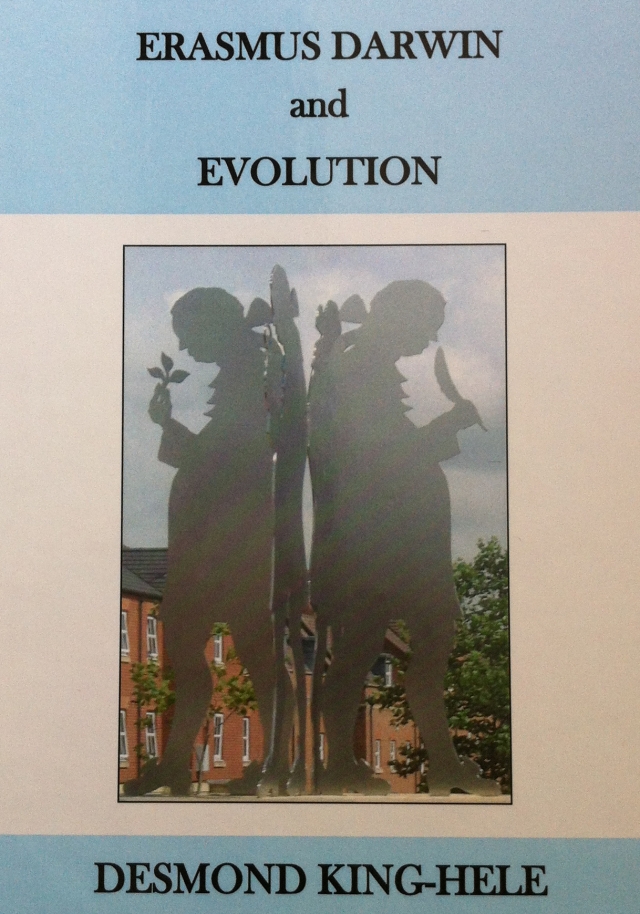Erasmus Darwin and Evolution
Review

Erasmus Darwin and Evolution, Desmond King-Hele, Stuart Harris [3 Pingle Head, 171 Millhouses Lane, Sheffield S7 2HD], 2014, 212p, £8-00. ISBN 978-0-9542-1518-7
Desmond King-Hele is foremost amongst contemporary scholars who have explored the life, work and ideas of Erasmus Darwin.
A substantial portion of this book is a basic introduction to the life and work of this highly significant 18th Century intellectual. This would be valuable to a newcomer seeking to explore his life for the first time but the book does read, to a degree, as a summary of King-Hele's much more detailed volumes on this subject.
Nonetheless in one particular respect this book offers something special. It is his focus on how scholars and scientists began to identify that evolution had occurred that makes this work stand out. King-Hele begins with the Greek classical scientists who had the beginnings of an intellectual grasp over how humans had evolved from fish, and he continues his analysis right up to the point where Erasmus Darwin's grandson published his Origin of Species in 1859. Erasmus Darwin's own collaboration with Josiah Wedgwood was central to the development his own thinking: it was Wedgwood's discovery of fossilised plants and creatures during the excavation of the Harecastle Tunnel on the Trent and Mersey Canal in 1767 helped Erasmus Darwin to a full realisation of what had happened, and indeed what might still be happening. It was this bag full of fossils which really re-enforced for Darwin that scholars and scientists needed to have a very substantially modified historical perspective over where and when these creatures and plants had been alive.

